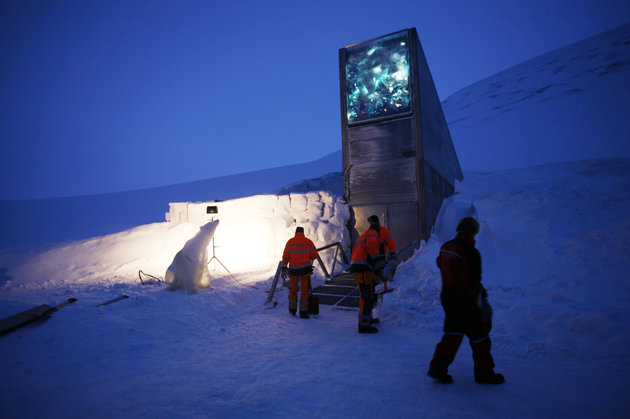Doomsday seed bank opened for first time because of Syrian war
They would usually get these seeds from a facility in Aleppo, Syria, but even though the seeds are still there and safe in cold storage, the scientists are unable to access them as a result of damage to the surrounding buildings caused by the war.
“I don’t think they’re getting back into Syria any time soon, so they’re going to re-establish that gene bank centre now in two locations: in Morocco and Lebanon”, said Cary Fowler, founder of the Svalbard Global Seed Vault.
The Arctic vault is designed to protect samples of seeds that could then be used to restart the plants’ growth in the event of cataclysmic events like an outbreak of disease or a nuclear war.
The request was made by the worldwide Centre for Agricultural Research in Dry Areas (ICARDA), which was originally based in Aleppo. ICARDA’s temporary unit in the Lebanese capital was only partially functioning, and it needed these samples as part of “its role as a hub to grow seeds and distribute them to other nations”, the news agency explained.
This is the first such “return-to-sender” mission in the Middle East since the Svalbard Global Seed Vault was launched in 2008. “Even if the power were to fail, the vault would stay frozen and sealed for at least 200 years”.
ICARDA managed to move its headquarters from Syria in the early days of the war, while some of its workers remained at the gene bank in Aleppo in an attempt to save the collection.
According to Grethe Evjen, an expert at the Norwegian Agriculture Ministry, the samples will be sent once paperwork is completed, Reuters reported.
Seeds removed from the vault include wheat, barley, and grasses.
“Protecting the world’s biodiversity in this manner is precisely the objective of the Svalbard Global Seed Vault”, Brian Lainoff, a spokesman for the Crop Trust which runs the vault, told Reuters.
Now ICARDA, temporarily based in Beirut, wants those seeds back for crops around the region and North Africa.
Syria’ four-year civil was has killed an estimated 250,000 people and displaced more than 11 million from their homes. When the farm was occupied, organizers were luckily able to send duplicates of its holdings to the Svarlbard Global Seed Vault, an Arctic seed vault in Norway that holds over 860,000 seed samples from around the world.








